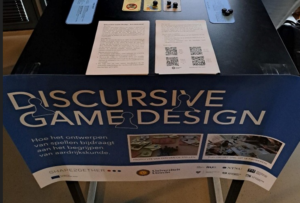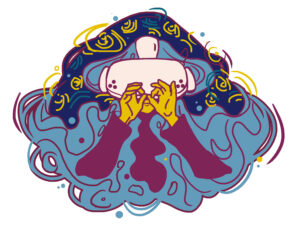
This article explores how making data playable, i.e. developing exploratory co-creation techniques that use elements of play and games to interpret small to mid-sized datasets beyond the current focus on visual evidence, can help a) promote creative data literacy in higher education, and b) expand existing definitions of data literacy. The article briefly investigates playful characteristics in existing data practices and discusses how these practices compare to existing frameworks that define data literacy. In a second step, the article presents a Discursive Game Design technique to promote creative data literacy. The article reports on findings from a sample workshop, during which students explored how modifying small, hybrid games based on real-world datasets can alter players’ interpretation of the data, but also their perception of how the games operate as epistemic objects within data analysis. Finally, a recommendation is formulated on how to adapt the technique to different educational settings.
The article can be found [HERE], and was published in the Journal of Media Literacy Education Vol.12 No.3 in 2020



